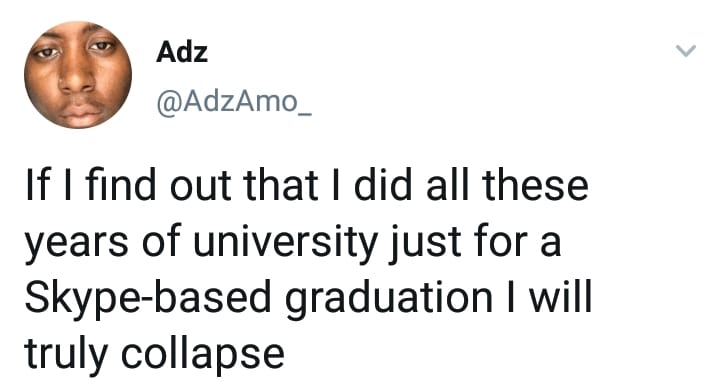Update: Since this response article was published, students recieved an email announcing that The University of Sussex would be adopting the ‘No Detriment’ policy that Tom and Jude mention in their response below. Read more about this news, here.
On Sunday night, Tom Polyblank and myself received a response from Adam Tickell to The Sussex Open Letter, which has received more than a thousand signatures. You can read it below.


Tom and I found this response to be wholly insufficient, merely a defence of the University’s policies, offering no relief to struggling students. Since the date our letter was published, University’s across the nation have rallied to accommodate for their students in ways that Sussex University hasn’t. “No-detriment” policies are one such means through which Universities have been able to ease the burden Covid-19 has placed upon students the country over. Today, The Sussex Open Letter throws its weight behind calls for a “no-detriment policy” to be implemented at Sussex. Our response can be read below, and the original letter, here. We encourage you to sign, share the message, and email the University directly to support our response. Additionally, in light of the university’s termination of some staff contracts, we would like to announce our solidarity with staff affected by the University’s actions, and encourage you to sign this petition, rallying against the move.

Dear Adam,
Thank you for your response. As we have already stated, several weeks this term have been cancelled due to, first, strike action and now the coronavirus pandemic. Undoubtedly, this has been to the detriment of students, and while the two week extension recently implemented goes some way in recognising this, it by no means goes far enough.
We support the decision to close campus and commend the University’s quick response to the crisis. Closing campus has played an invaluable part in stemming the spread of the virus. We have always recognised this as necessary.
However, as stated in our letter, the provision of online learning, by definition, as a replacement, is naturally going to be poorer than the standard we should have otherwise experienced. No matter how successful the transition to the online provision, nor indeed how high the quality of teaching is for an online course, it remains, as you yourself state, an inferior alternative. Adding to this is the fact that key aspects of uni life beyond seminars and lectures are now unavailable, such as the library and the learning environment afforded by a campus itself. While we agree with your views on the need for a universal response, the online provision on its own is anything but universal, as you and Kelly Coates recognise. By moving online, management overlooks the various home lives of students, those who do not have easy access to the internet, those who now live in more problematic environments, those affected by the coronavirus, as well as those from lower-income backgrounds who cannot afford to buy books in lieu of the university library.
While your reply accounts for the difficulties in providing various options for the student body in response to the crisis, it fails to present any concrete policy that will provide an unaltered quality of education, or otherwise, more importantly, to protect our grades as they stand. You state that there will be “no detriment to student’s grades as a result of moving to online provision”, yet have implemented only the most basic measures in ensuring this promise.
The recent statement from Kelly Coate that you have cited is equally unsubstantiated and open to interpretation. Point one, “Flexibility in the timings of assessment deadlines”, has turned out to simply mean a two week extension. Extensions to deadlines are implemented when a students capacity to learn and work has been impeded, so extensions in light of the current crisis are entirely appropriate, though arguably two weeks is a relatively small adjustment considering the scale of upheaval this term. However, what remains unaddressed is the fact of the University’s limited capacity to teach its students to the previous standard, no matter how effective the replacement. This unprecedented situation merits an unprecedented response beyond what is currently being implemented.
Point two, “Your semester two grades will not be impacted adversely by the global Covid-19 situation”, seems to be an unsupported version of the no-detriment policy. The statement that, “The impact that Covid-19 will have had on your learning will be taken into consideration when awarding you your Semester two grades”, gestures towards the policy but suggests it will not be fulfilled and the leniency that ought to be supplied uniformly in awarding our grades will more or less be left to the discretion of individual markers. There is no set standard for the “consideration” promised here that might otherwise be supplied by the no-detriment policy.
We proposed, in option three of our letter, a measure similar to the no-detriment policy implemented by the universities of Southampton, Exeter, and Edinburgh. In light of the national situation, we are therefore now asking, along with thousands who have signed our letter and the change.org petition, that you implement a ‘no-detriment policy’. This assures that grades can only be positively affected, insuring students against the negative effects of the crisis, while allowing students who wish to improve their grades to do so. In accordance with the Consumer Rights Act 2015, we have a strong legal basis to ask that these reasonable measures be implemented in a timely fashion. We do not wish to put undue stress on faculty members and believe this policy is not only the best choice for giving students a fair chance, but also the path of least resistance for the university itself.
We implore that you reply in a reasonable time frame, and look forward to hearing your response,
Thomas Polyblank and Jude Whiley-Morton





There is a huge gap between achieving a 40% and a 70%! They are not the same and should not be treated the same. The difference between them is one of knowledge. If I got a 40% and got it boosted up to 70% that does not truly reflect my level of knowledge. If this policy is introduced then they should cal the final achievement mark to a 2:2!
Can you add the links for this for students to share?
Hey Helena, they’re embedded in the article! At the beginning when you read about the Open Letter, you can click on it and be directed to the site.
Three weeks of strike and the crisis but I’m still getting charged £15k of International Student fees? I want to know why the university has not made any comments on this? Personally my lecturers have not opted for zoom etc but only recorded lectures online, so how is it fair that I am paying that much? I understand that local students would have to later on pay this back due to being under loan but I am paying this off right now with savings my family have been starting since I was a kid and truthfully it feels like I could probably use this to help us out during the next few months! I wish they revised our payments or something along those lines..
Hello to all
In this puzzling forthwith, I love you all
Rise your one’s nearest and friends